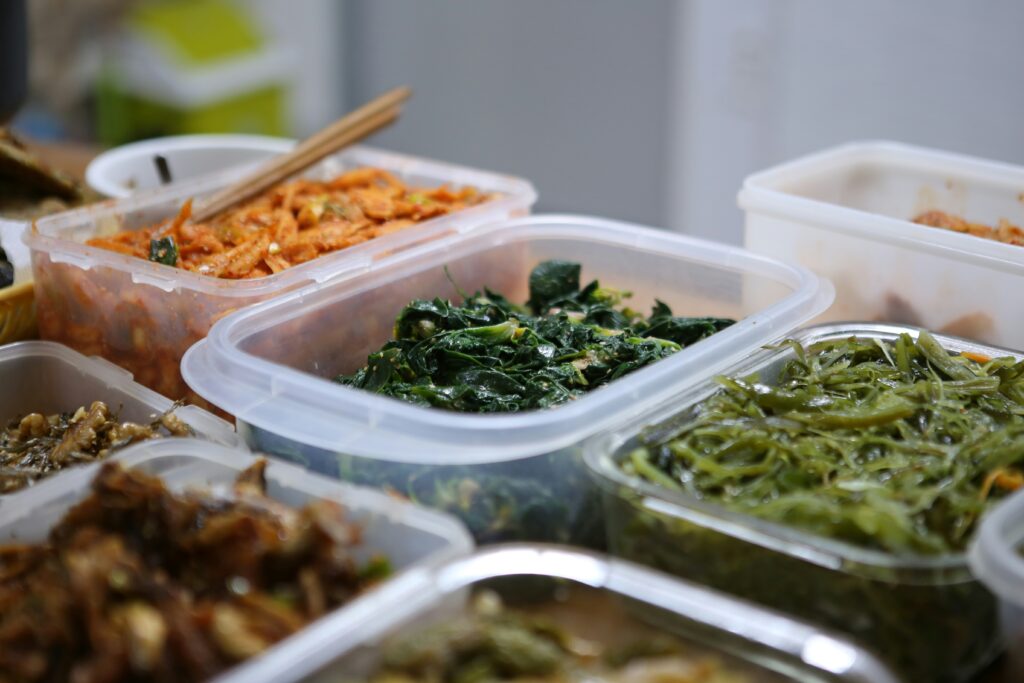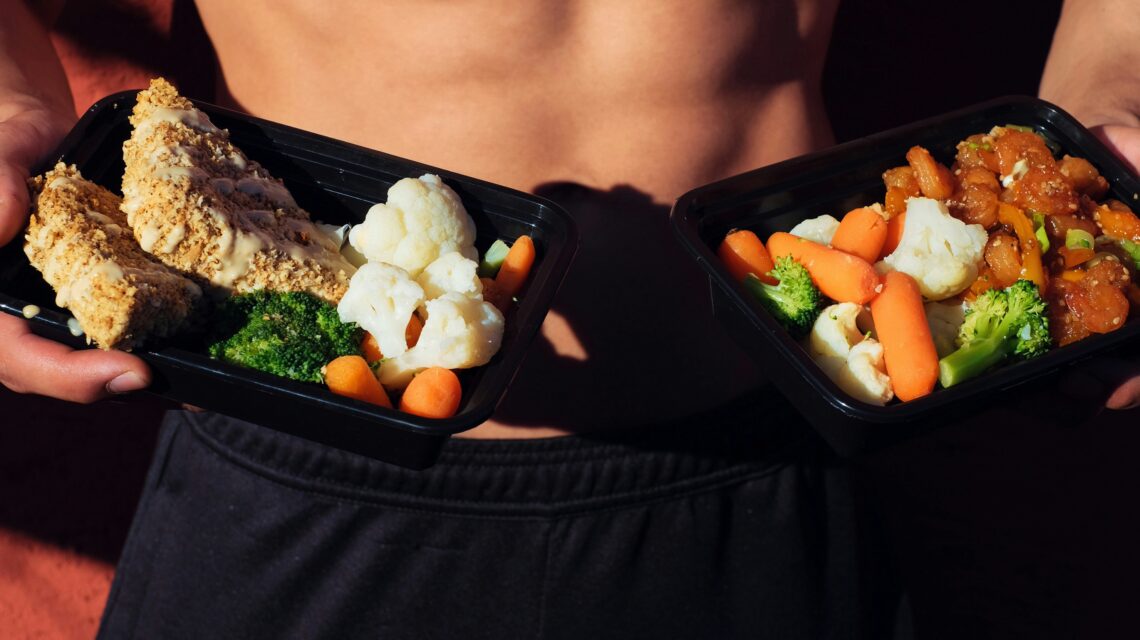Have you ever felt like there’s just not enough time in the day to plan out healthy, delicious meals? Meal prepping could be the solution you’ve been searching for! It’s a practical way to save time, reduce stress during the week, and maintain a balanced diet, all while saving money. Let’s break down the process and uncover how you can efficiently plan your meals each week.

What is Meal Prepping?
Meal prepping involves preparing meals ahead of time for the upcoming days or week. It’s all about planning, cooking, and storing meals to make your life easier. It’s not only about cooking entire meals in advance but also about prepping individual ingredients or portions. Whether you’re a busy professional, a parent juggling several roles, or someone looking to lead a healthier lifestyle, meal prepping can fit seamlessly into your routine.
The Benefits of Meal Prepping
Meal prepping is not just a time-saver; it offers numerous benefits that can enhance your quality of life. Here are a few reasons why you might consider starting:
- Time-Saving: By dedicating a specific time for meal prep, you’ll free up precious time during the week as your meals will be mostly ready to eat.
- Healthier Eating Habits: Prepping meals gives you control over what you eat and allows you to create balanced, nutritious meals that suit your dietary needs.
- Money-Saving: Planning meals in advance decreases the likelihood of spontaneous food purchases, which saves money in the long run.
- Reduced Stress: Knowing what you’re going to eat each day removes the daily decision-making around mealtime.
Getting Started with Meal Prepping
Beginning a meal prep routine might feel overwhelming at first, but breaking it down into manageable steps can help simplify the process.
Define Your Goals
Before you start, consider what you want to achieve with meal prepping. It could be weight loss, saving money, or simply eating healthier. Your goals will guide you in choosing meals that align with your needs.
Plan Your Meals
The foundation of effective meal prepping is planning. Choose a day, typically before grocery shopping, to plan your meals. Here’s how you can plan efficiently:
- Decide on the Number of Meals: Determine how many meals and snacks you need to prepare for the week.
- Select Recipes: Choose recipes that align with your dietary needs and that you’re excited to eat. Variety is key to preventing meal fatigue.
- Create a Shopping List: List ingredients based on your chosen recipes to ensure you buy only what you need and avoid food wastage.
Basic Equipment for Meal Prepping
Having some essential tools can make meal prepping more efficient and enjoyable. Here’s a quick list of basics:
| Equipment | Purpose |
|---|---|
| Food Storage Containers | For storing prepped meals and ingredients |
| A Sharp Knife | Making chopping and slicing easy |
| Measuring Cups and Spoons | To ensure balanced nutritional portions |
| A Large Cutting Board | Ample space for preparing multiple ingredients |
| Sheet Pans, Pots, and Pans | For cooking various recipes |
Choose the Right Containers
The choice of storage containers can impact how well your meals hold up throughout the week. Look for containers that are:
- Leak-Proof: To prevent spills and keep your food fresh.
- BPA-Free: To ensure your food is stored safely.
- Microwave and Freezer Safe: For easy reheating and storage.
- Compartmentalized: Separates different food types, especially useful for meals with different components.
The Meal Prep Process
Now that you have your meals planned and equipment ready, it’s time to prep.
Batch Cooking
Batch cooking involves making large quantities of one or several recipes to be divided up into meals. This method can be applied to dishes like soups, stews, grains, or proteins which reheat well.
Preparing Ingredients
If you prefer some meals to be cooked fresh, consider prepping ingredients ahead of time. This means washing, chopping, or marinating ingredients in advance, making it easier to assemble meals during busy days.
Assembling the Meals
Once everything is cooked and prepped, it’s time to assemble. Portion your meals according to your dietary needs and arrange them in your containers. Make sure each meal includes a balance of proteins, vegetables, and carbohydrates for a well-rounded diet.
Storage Tips
Proper storage ensures your meals last throughout the week and remain fresh:
- Refrigerate Meals for the Week: For those meals that you’ll consume in the next few days, refrigeration is sufficient.
- Freeze Meals for Later: Meals that you plan to eat later can be stored in the freezer to maintain freshness.
- Labeling: Labeling your meals with the date and contents makes it easy to track when they were prepared and what’s inside.
Tips for Successful Meal Prepping
Meal prepping can be a bit of trial and error at first, but these tips might help make the process smoother:
- Start Small: If you’re new to meal prepping, start with a few meals per week to get comfortable.
- Keep it Simple: Don’t overcomplicate your recipes or prep time—choose easy-to-make recipes that require basic cooking techniques.
- Be Flexible: Meals can sometimes not go as planned, so allow room for flexibility.
- Stay Organized: Keep your pantry and refrigerator organized with labeled storage to make meal prepping seamless.

Troubleshooting Common Meal Prepping Challenges
Even with the best intentions, challenges can arise when meal prepping. Here are some common issues and how to tackle them:
Meal Fatigue
Eating the same meals repeatedly can become monotonous.
Solution: Incorporate a variety of cuisines and flavors into your meal plans. Experiment with different spices, sauces, and textures. Switching up your recipes weekly can also keep things exciting.
Time Management
You might find that meal prepping takes longer than expected.
Solution: Break the process into smaller tasks. Dedicate one day to planning and shopping, another to chopping and cooking. Use efficient cooking techniques like baking on one sheet pan or using a slow cooker.
Food Spoilage
Food may not last as long as anticipated.
Solution: Properly store meals and understand the shelf life of ingredients. Utilize airtight, compartmentalized containers and freeze any meals you won’t eat within a couple of days.
Bringing It All Together
Meal prepping is about creating a routine that fits your lifestyle while allowing flexibility for changes and improvement. By preparing meals in advance, you take control over your diet, save time and money, and reduce stress. Remember, meal prepping should serve you; therefore, adapt the strategies that work best for your life. With a bit of organization and planning, you can make meal prepping a sustainable part of your weekly routine.
Meal prepping may require a bit of time and effort initially, but the benefits are well worth it. So, go ahead—begin your meal prep journey and enjoy the convenience and satisfaction of having delicious, ready-to-eat meals at your fingertips!


 Natural Skincare 101: Everything you Need to Know
Natural Skincare 101: Everything you Need to Know  How To Create A Balanced Meal Plan For Optimal Health
How To Create A Balanced Meal Plan For Optimal Health  Top 5 Superfoods To Include In Your Diet
Top 5 Superfoods To Include In Your Diet  Beginner’s Guide To Rheumatoid Arthritis: What You Need To Know
Beginner’s Guide To Rheumatoid Arthritis: What You Need To Know  How Our Diet Affects Aging: Foods For A Longer Life
How Our Diet Affects Aging: Foods For A Longer Life  How To Create A Longevity-Boosting Diet Plan
How To Create A Longevity-Boosting Diet Plan  How To Create A Skincare Routine For Oily Skin
How To Create A Skincare Routine For Oily Skin  The Best Ingredients For Anti-Aging Skincare
The Best Ingredients For Anti-Aging Skincare  Skincare Myths That Are Wrecking Your Glow
Skincare Myths That Are Wrecking Your Glow  Natural Skincare 101: Everything you Need to Know
Natural Skincare 101: Everything you Need to Know  The Ultimate Guide To Sunscreen: What You Need To Know
The Ultimate Guide To Sunscreen: What You Need To Know  Guide to the Best Anti acne Products for Clear Skin
Guide to the Best Anti acne Products for Clear Skin